Ukraine in the EU: what needs to be done?
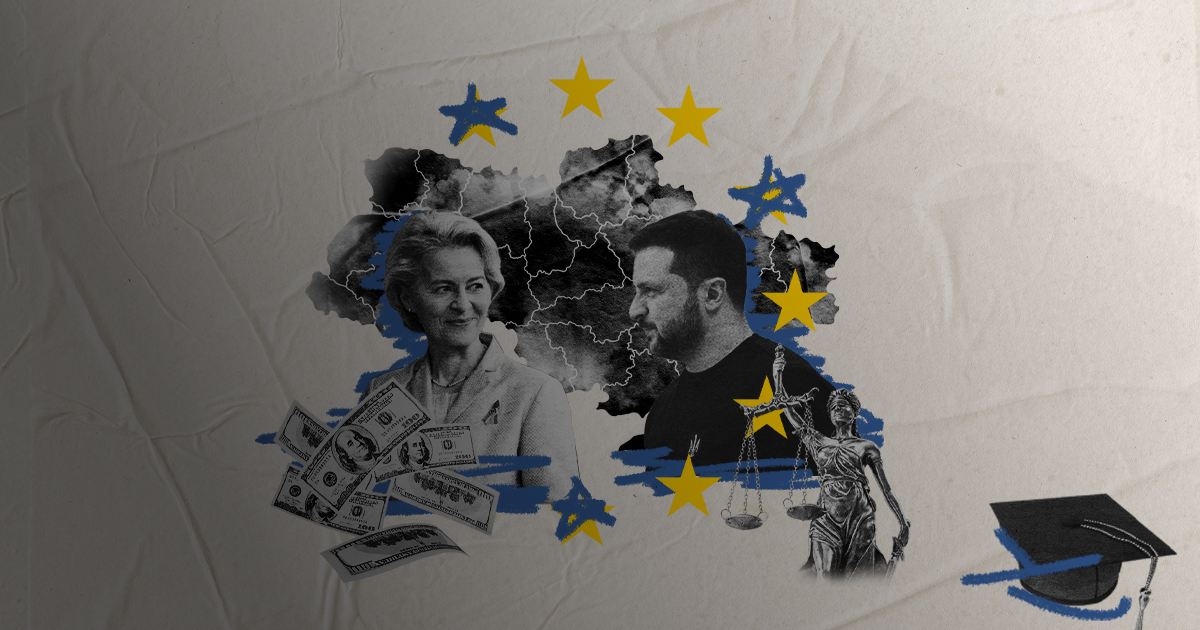
On November 8, 2023, the European Commission recommended starting negotiations on Ukraine's accession to the European Union. At the same time, the Commission presented a report on reforms and recommendations for the next steps. Some items were mentioned for the first time.
On December 14, the European Council made the next important decision to start negotiations with Ukraine on EU accession.
Read the material to find out how European institutions see Ukraine's progress and what the European Commission thinks Ukraine needs to change in 2024.
Reform plan for Ukraine
The European Council will propose a "roadmap" with negotiating chapters and reforms that Ukraine must implement before becoming an EU member. Ukraine's president, Volodymyr Zelenskyy, said that Ukraine expects the negotiating framework to be in spring 2024.
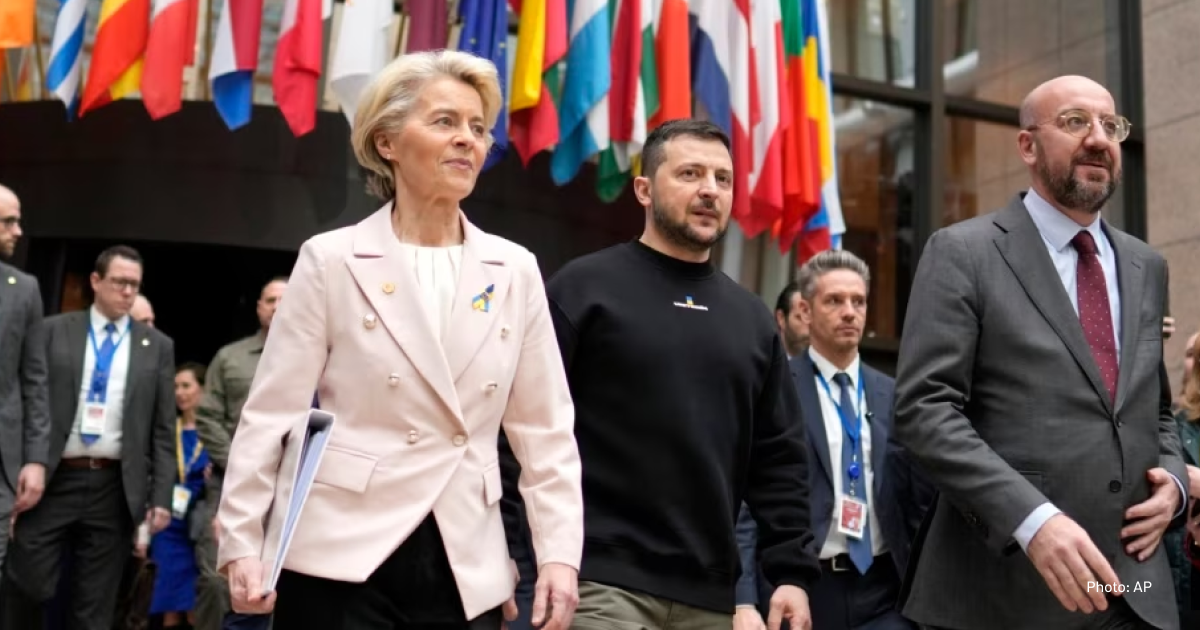
On December 12, 2023, on the eve of the decision to start negotiations on Ukraine's accession to the EU, the European Council published an opinion on the enlargement of the Union, where it "commended Ukraine for the significant progress made" on its path to European integration.
What was highlighted: progress in ensuring the rule of law, the adoption of the law on media, progress in the functioning of anti-corruption institutions and the harmonisation of anti-money laundering legislation in line with FATF (International Group on Action against Transnational Organised Crime) standards. The European Council expects further steps to fight corruption and protect the rights of national communities.
The European Council has now proposed to adopt a framework for negotiations after the steps outlined in the European Commission's recommendations of November 8 are taken.
This 152-page document provides an overview of Ukraine's key areas, including an assessment of its democracy, rule of law, fight against corruption, living standards and economy. All of the points are accompanied by recommendations that should be implemented in the coming years.
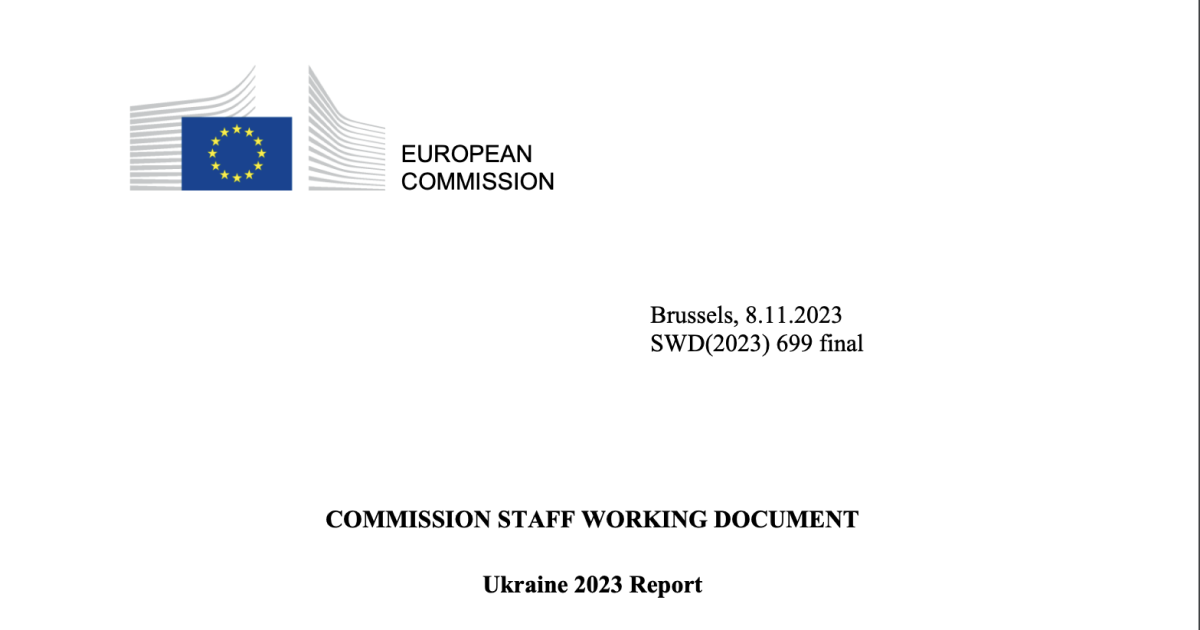
In addition to the usual suggestions on developing a strategy for attracting and reintegrating internally displaced persons into the Ukrainian labour market, there are also recommendations on introducing remote hearings in courts or developing simplified rules for journalists working in the war zone.
This report is not only a roadmap for further reforms but also a reflection of how deeply European partners are involved in Ukraine's internal social and political processes and how they want to see the country as an EU member in the future.
Democratic institutions and governance
In the report, the European Commission notes that, despite the war, the Ukrainian government and parliament have been working on reforms to join the EU, including the seven steps announced by the European Commission in June 2022.
Svidomi previously published a separate material named Ukraine — EU. How have the recommendations of the European Commission been implemented?
The Verkhovna Rada performed essential functions, although there were concerns about the limited transparency of its work for security reasons. Bills submitted by parliamentarians often lacked adequate explanatory notes and/or impact assessments of the laws.
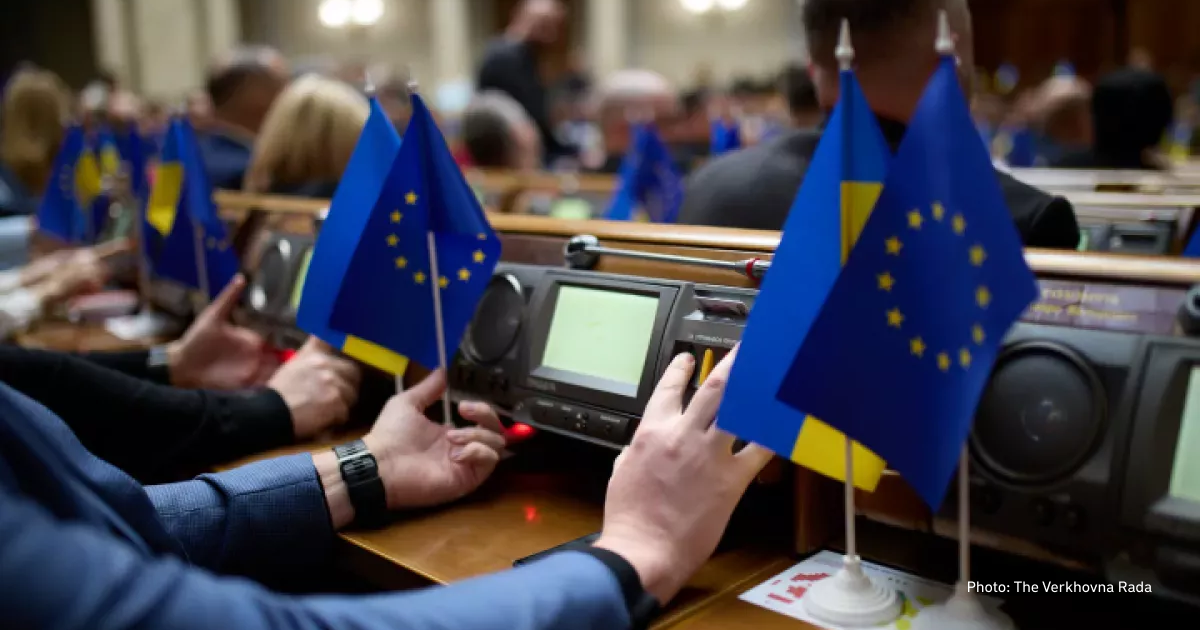
On the positive side, the Verkhovna Rada passed a law restoring financial reporting by political parties, and the President signed it.
There is no systematic monitoring of the implementation of laws by the parliament. In other words, laws are passed, but their implementation is not monitored. The Commission notes that proper monitoring standards need to be in place, in particular, to prepare the framework for Ukraine's reconstruction.
Ukraine has a certain level of expertise in public administration reform, but reforms have slowed or stopped in recent years. Despite this, the digitalisation of service delivery has reached a high level.
"The lack of a professional and depoliticised approach to the civil service, combined with non-transparent direct appointments, has undermined the competitiveness and independence of the civil service. The remuneration system remains non-transparent and unequal," the European Commission writes.
In 2024, Ukraine should, in particular, restore the merit-based recruitment and selection process to the civil service, introduce a job classification as a prerequisite for wage reform, and work on deploying a state human resources management information system.
Regarding multi-level governance, progress in decentralisation reform continued, and territorial communities are the backbone of Ukraine's resilience. At the same time, martial law gave rise to a large number of military administrations. Ukraine should legislate to clarify the criteria for their establishment and restore local self-government where the security situation allows democratically elected bodies to fulfil their powers.
Earlier, the head of the Committee of Voters of Ukraine, Oleksii Koshel, in a comment to Svidomi, highlighted the creation of unjustified military administrations as a problem for city governments.
The European Commission writes that Ukraine should refrain from adopting the law on urban planning in its current form (draft law No. 5655, which the Verkhovna Rada adopted in December 2022, but the president did not sign it — ed,) because it leads to the deprivation of local authorities' powers in this area.
Ukraine has a certain level of preparation and should continue to work on the functioning of the judiciary. The High Council of Justice and the High Qualification Commission of Judges have been relaunched "following a transparent process with significant involvement of independent experts". It will allow for filling more than 2,000 judicial vacancies and conducting a qualification assessment of about 1,900 current judges.
In August 2023, Ukraine enacted legislation enabling a transparent and merit-based preliminary selection of judges to the Constitutional Court in line with the recommendations of the Venice Commission. In 2024, Ukraine will have to fill these vacancies.
Following the liquidation of the Kyiv District Administrative Court in December 2022, a new administrative court should be established to hear cases against central government agencies. The court should be staffed by judges who have undergone proper vetting.
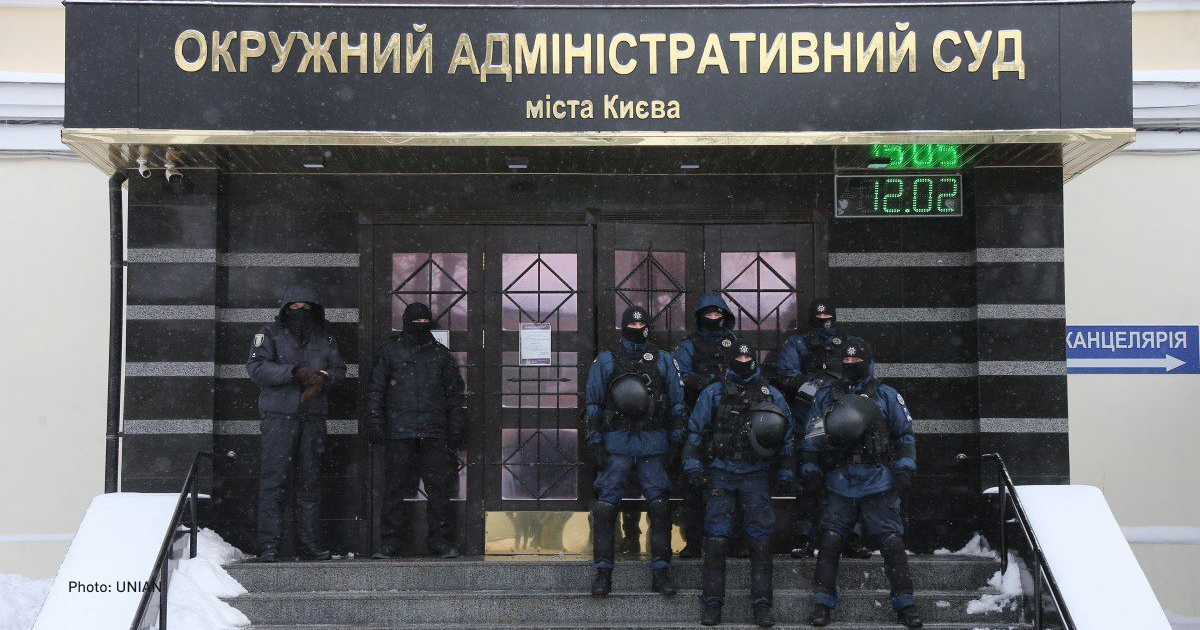
In addition, Ukraine should continue to digitise the judiciary and pursue legal education reform.
The selection procedures for prosecutors at the senior level remain "inadequate" as they lack transparency, trust, integrity, professionalism and leadership vetting.
The Prosecutor General selection procedure should be more transparent and objective, as the position is currently vulnerable to political interference. The grounds for dismissal of the Prosecutor General should be exhaustive and clearly defined by law, and the dismissal procedure should be more transparent.
Considering the challenges posed by a full-scale war, the European Commission believes that Ukraine should adopt legislation that officially introduces remote court hearings.
In the context of the fight against corruption, the European Commission noted that in 2022-2023, new heads of the Specialised Anti-Corruption Prosecutor's Office (SAPO) and the National Anti-Corruption Bureau (NABU) started working. Since these appointments, the NABU and SAPO have strengthened cooperation and expedited investigations into high-level corruption cases, including those involving deputy ministers, former MPs and high-level judges, such as the Chief Justice of the Supreme Court.
The e-declaration system was restored and opened to the public. Ukraine adopted a comprehensive State Anti-Corruption Programme in March 2023 and launched an IT system to monitor its implementation, as well as a Single Whistleblower Reporting Portal.
Some of the steps that needed to be taken next have already been completed. These include increasing the NABU's staff, strengthening the SAPO's independence, removing it from the structure of the Prosecutor General's Office, and allowing the National Agency for the Prevention of Corruption to re-examine the assets and property of officials acquired before they were appointed to public office.
"Our enlargement report from last month shows clear progress on all steps that we have identified; over 90 per cent of these reforms had been completed by that time. We identified four reforms to complete back then fully. [Since the report] Ukraine has continued to work on all of them," said Ursula von Der Leyen, President of the European Commission.
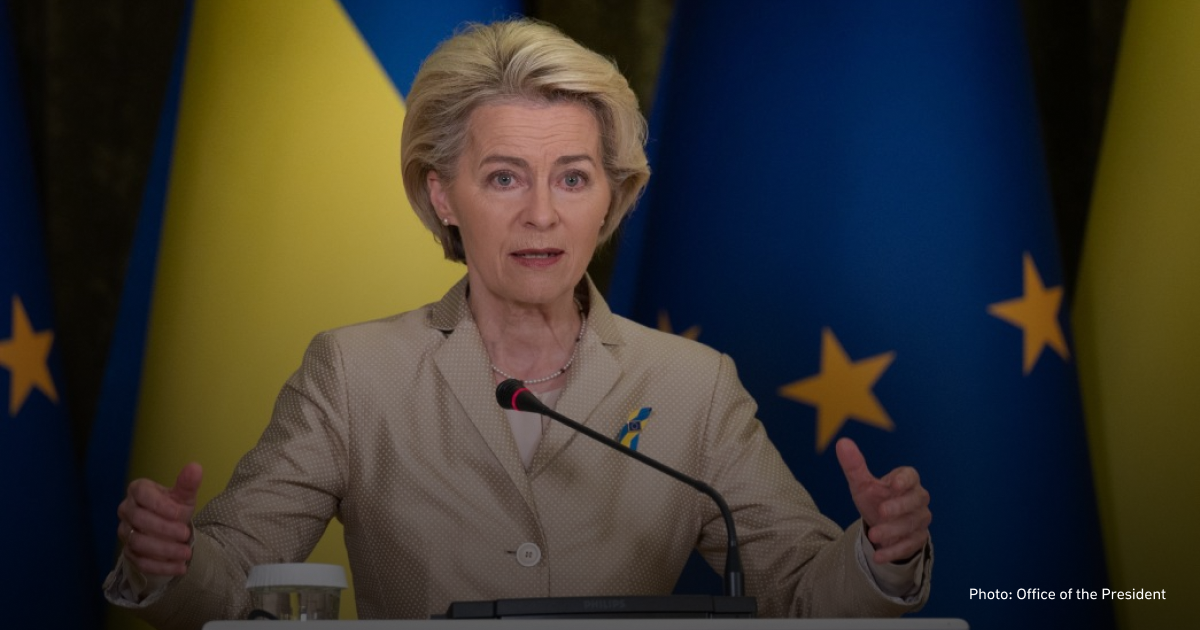
The November report contained a requirement that Ukraine's partners had not publicly shared before. It concerns the so-called "Lozovyi amendments" to the Code of Criminal Procedure, which limit the timeframe for pre-trial investigation of criminal proceedings, which can lead to cases being closed without a court verdict.
The European Commission wrote about "the introduction of reasonable/reasonable pre-trial investigation timeframes". The Verkhovna Rada voted to repeal the "Lozovyi amendments" partially.
An electronic petition to the President of Ukraine demanding that the amendments be cancelled in full gained the required 25,000 signatures in an hour. It is the fastest time ever to collect the necessary number of signatures. The petition has been under consideration since December.
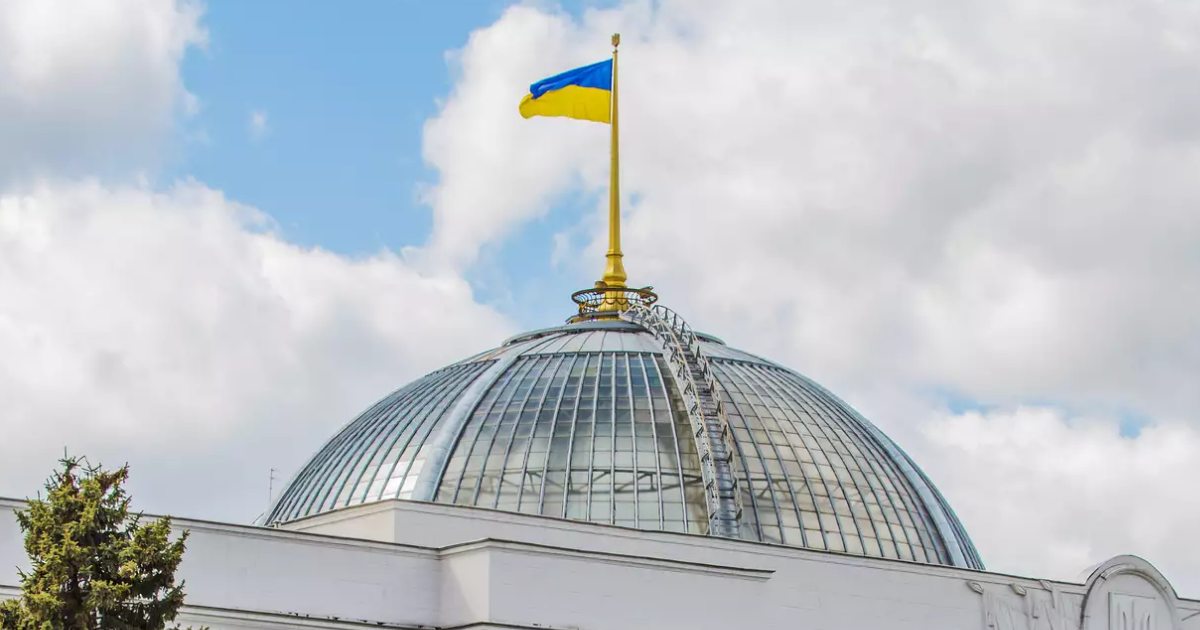
The Commission also notes that the NABU is limited in its powers. The body should be able to conduct wiretaps without relying on the Security Service. Furthermore, there is a practice in Ukraine where other law enforcement agencies, including the State Bureau of Investigation (SBI), the Financial Investigations Service (FIS) and the Security Service (SSU), investigate cases that fall within the exclusive investigative powers of the NABU.
The challenges of the SBI, FIS and SBU are that they have limited public oversight and accountability, lack inter-agency cooperation and lack a fair and transparent recruitment procedure.
Fundamental rights
Ukraine generally adheres to international human rights instruments and has ratified most international conventions on protecting fundamental rights.
At the beginning of the full-scale invasion, Ukraine introduced martial law, which led to some restrictions on rights and freedoms. Still, these remain proportionate to the security situation in the country. For example, there is a curfew at night, and most men of military age cannot leave the country.
The number of reported cases of discrimination against communities, including the LGBTQIA+ community, national minorities and the Semites, has decreased.
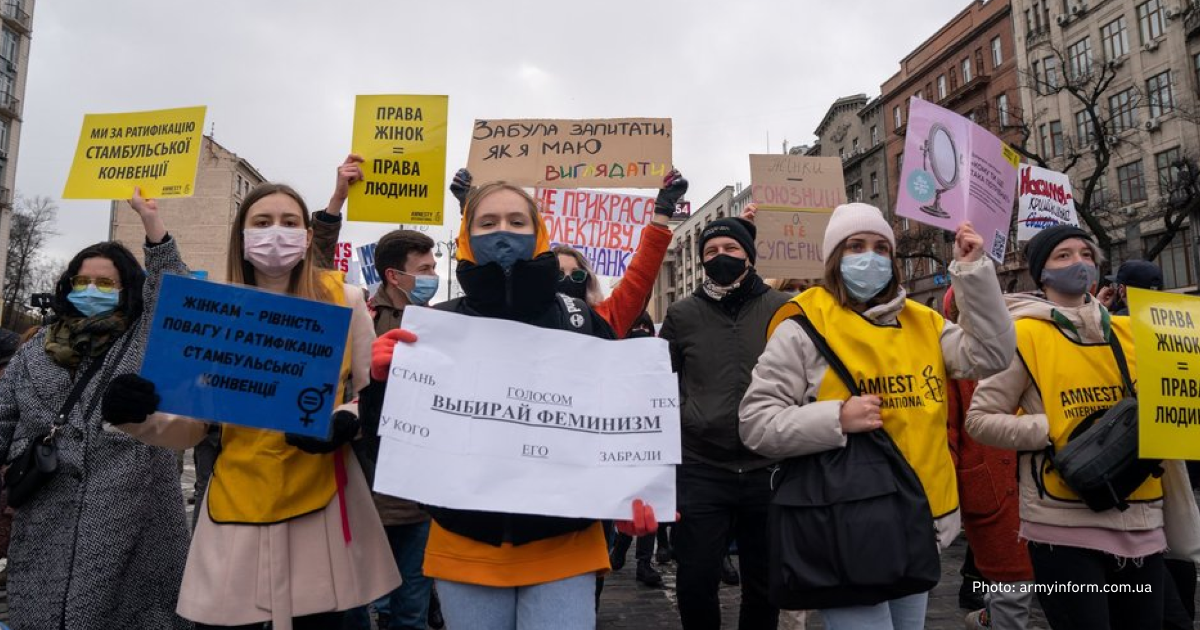
Ukrainian criminal law provides for the punishment of hate crimes and hate speech on three grounds: race, nationality and religious beliefs, but does not cover sexual orientation and gender identity.
Regarding the rights of national communities: in December, the Ukrainian authorities adopted a law guaranteeing the right to use the language of national communities alongside the state language, Ukrainian. The European Commission notes that support for the Roma community should be strengthened.
In 2021, the Cabinet of Ministers approved the Strategy for Promoting the Rights and Opportunities of Persons belonging to the Roma National Minority. Among the challenges faced by the minority are the lack of documents, negative stereotypes about members of the Roma minority, discrimination, low levels of education and legal awareness, low living standards, employment and access to healthcare.
In July 2022, Ukraine ratified the Istanbul Convention on preventing and combating violence against women and domestic violence. It adopted a state strategy until 2030 to ensure equal rights between men and women. The European Commission writes that in 2024, Ukraine should adopt legislation to implement this convention.

Ukraine also needs to ratify the Rome Statute of the International Criminal Court and accede to the International Convention on the Protection of the Rights of All Migrant Workers and Members of Their Families.
The situation of people with disabilities in Ukraine remains challenging in terms of equality, inclusion, and opportunities. There is a lack of accessible transport, healthcare, social services and public buildings. Legislation does not provide incentives for employing persons with disabilities in the open labour market. Russia's invasion has added to the tension around this issue, as the hostilities have destroyed medical facilities, and more people have been disabled.
In 2024, Ukraine should ensure that legislation on the rights of people with disabilities is enforced so that the restored and reconstructed infrastructure meets barrier-free standards.
In the area of freedom of expression, Ukraine has made "notable progress" with the adoption of a law on media in December 2022. Citizens of Ukraine are free to express their views, and there are critical materials in the media. However, the introduction of the United News telethon has reduced people's access to pluralistic media and led to increased state control over broadcasting.
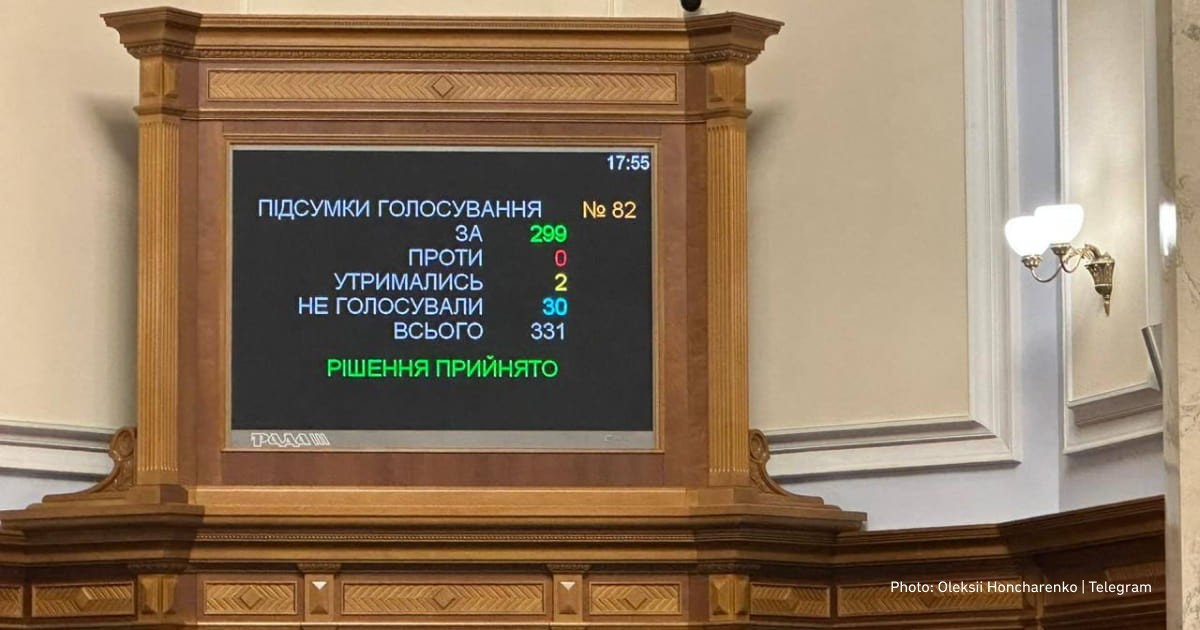
The situation of journalists remains economically and physically difficult since the start of the full-scale invasion. In 2024, Ukraine should develop simplified rules for journalists to work in the war zone, taking into account security.
The large number of international and war crimes and human rights violations committed by Russia poses a challenge for Ukrainian institutions to ensure effective investigations and prosecutions. Additional mechanisms (including non-judicial ones) will be needed to overcome the consequences of the war and restore justice.
Torture and poor treatment of patients remains a feature of the prison system. The material conditions of detention in Ukrainian prisons are poor, and the attitude to prisoners' health is poor.
"Poor detention conditions in Ukraine have sometimes served as grounds for foreign courts to refuse extradition requests from Ukrainian institutions. It undermines Ukraine's fight against serious crime, including corruption and organised crime," the European Commission writes.
In 2023, Ukraine was denied extradition from France of oligarch Konstiantyn Zhevaho, who is suspected of embezzling $113 million from the Finance and Credit Bank and attempting to bribe Supreme Court Chief Justice Vsevolod Kniaziev, and Yan Petrovsky, a co-founder of the Rusych sabotage and assault intelligence group who is hiding in Finland. The Rusych group, together with the Russian military, is involved in the war against Ukraine. In 2015, the mercenaries of this group were accused of atrocities against dead and captured Ukrainian soldiers. Yan Petrovsky was sanctioned for undermining Ukraine's territorial integrity, sovereignty, and independence.
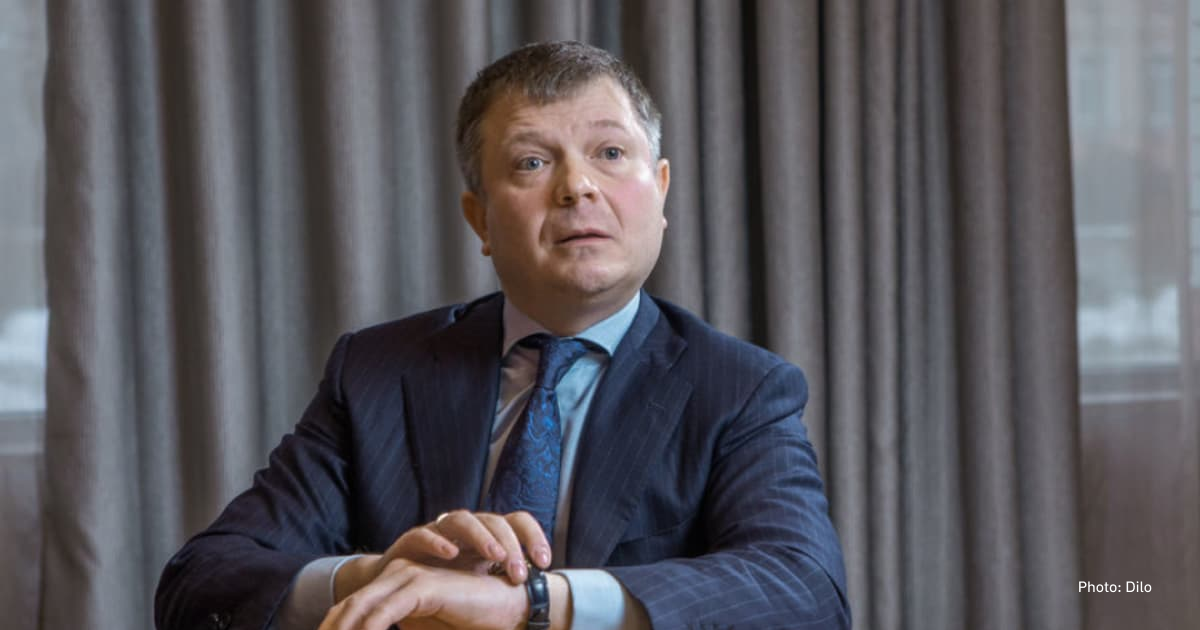
Petrovsky was refused extradition to Ukraine on the grounds of violation of Article 3 of the Convention on Human Rights, according to which no one shall be subjected to torture or punishment in a manner that is inhuman or degrading.
Economic criteria
Even before Russia's full-scale invasion, Ukraine's macroeconomic performance was relatively weak due to low foreign and domestic investment levels, a declining population and dependence on low-value-added sectors (commodities).
In 2022, the economy contracted by 29.1% due to the war and, according to the European Commission, was more resilient than expected. Population displacements, supply chain disruptions, inflation, the temporary occupation of Ukrainian regions, declining investment, and reduced exports hit the economy. The general government budget deficit in 2022 was kept at 16.3% of GDP thanks to foreign grants.
The authorities cancelled specific regulatory requirements for the period of martial law and introduced more lenient taxation conditions for businesses and individual entrepreneurs to allow companies to operate. For example, third-group entrepreneurs under the simplified taxation system had to pay 2% of their income instead of 5%, businesses were allowed to avoid filing reports, tax payments were deferred, and those who could not pay on time were exempted from liability. Subsequently, the government began to roll back some of the changes to save the economy.
In 2023, the economy started to recover despite the constant Russian attacks. This was due to the resilience of the energy infrastructure, the partial return of refugees (according to the International Organization for Migration, 4.7 million people returned to their places of permanent residence in Ukraine in June 2023, 20% of them from abroad), and the ability of businesses and households to adapt to the war economy.
In 2023, inflation declined after reaching a 6-year high in 2022 (26.6% as of December). In August 2023, the inflation rate decreased to 8.6% due to increased food and fuel supplies, the restoration of the energy system after Russia's attacks, and regulation by the National Bank of Ukraine.
The "informal economy", or shadow economy, is a significant part of the Ukrainian economy and is estimated at 30-40% of Ukraine's GDP. It reduces tax revenues to the state budget and worsens working conditions.
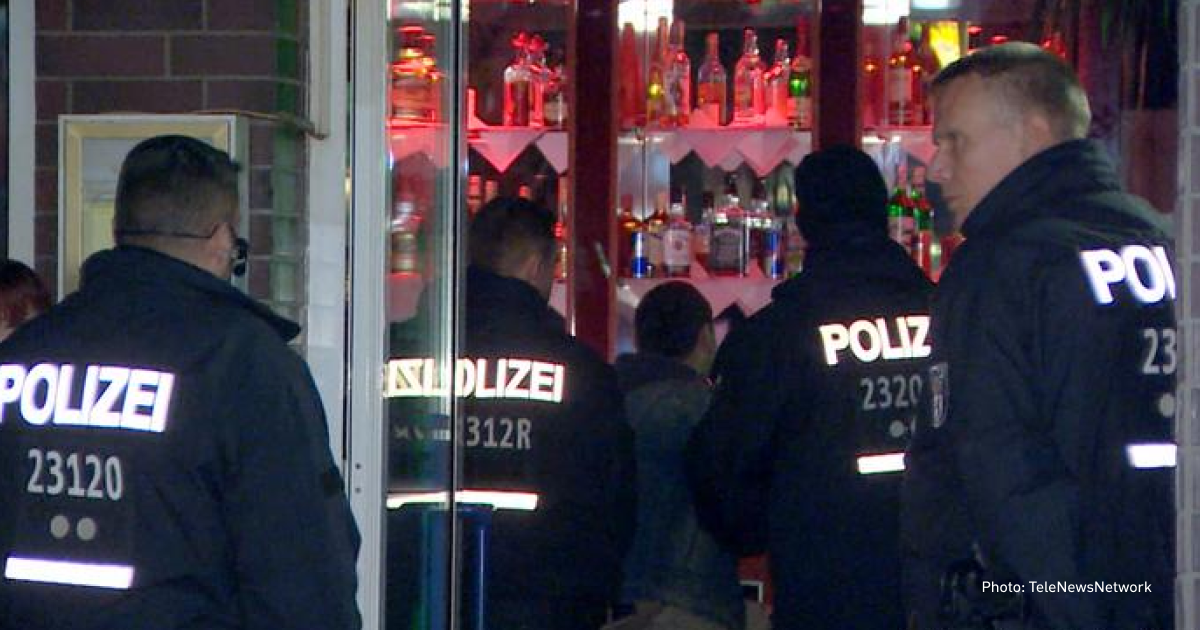
There is still a weakness in law enforcement and a general lack of trust in state institutions. In addition, corruption creates an unstable business environment, which encourages informal work.
Future reconstruction can help modernise the economy and strengthen competitiveness. Ukraine needs to work on managing state-owned enterprises, intensifying privatisation, and developing a strategy to attract and reintegrate people into the labour market.
Ukraine has a certain level of expertise in fighting organised crime. The number of joint operations with EU member states is growing, but the legal framework and operational capacity remain weak. Ukrainian law enforcement is currently focused on investigating international crimes. They also have to work with reduced budgets and staff.
The European Commission notes that inter-agency coordination should be strengthened, and the legal framework and institutional capacity for financial investigations, asset recovery and management should be improved. The Financial Investigations Service (FIS), the key agency fighting economic crime, should introduce an accountability system and transparent and merit-based selection of its leadership.
The FIS was established in November 2021 as a central body to fight financial crime. However, its operational capacity remains limited, and its performance "raises questions about its effectiveness and coordination with other law enforcement agencies". In February 2023, the Verkhovna Rada Committee on Finance, Taxation and Customs Policy rated the performance of the FIS management as unsatisfactory.
The Asset Recovery and Management Agency (ARMA) is underutilising its asset confiscation and recovery tools. Comprehensive reform of the agency should be implemented, including transparent selection of the head, prioritisation of asset seizures, management, sale and valuation of assets, and unblocking the ability to manage corporate property rights.
Svidomi devoted a separate material to the work of ARMA and its shortcomings: Where do confiscated Russian assets end up? The story of the (in)action of the Asset Recovery and Management Agency.

Ukraine is located at the crossroads of smuggling routes for illegal goods to the EU, including weapons, drugs and cigarettes. There is also an illegal timber trade.
The European Commission highlighted that smuggling has not been criminalised in Ukraine as a problem, but on December 9, the Verkhovna Rada passed a law criminalising it. Technical border control and surveillance capacities must be improved, and anti-corruption measures are needed.
Ukraine is a "source, transit and destination country" in human trafficking. It is also a country of drug production and transit. The full-scale war has affected international criminal networks and traditional trafficking routes. It also creates new risks for the arms trade.
Education and innovation
Ukraine invests a larger share of GDP in education than the EU, but this is not proportionally reflected in the results. It has contributed to a high level of formal education: in 2020, 54% of the working-age population studied or received higher education (almost twice the EU average).
At the same time, Ukraine was ranked 39th out of 77 countries in the 2018 PISA reading assessment. This figure is low compared to investment in education.
The PISA-2022 results showed that Ukrainian students scored 38 points lower in reading than in 2018. The COVID-19 pandemic and the full-scale war in 2022-2023 contributed to the deterioration in the quality of education.
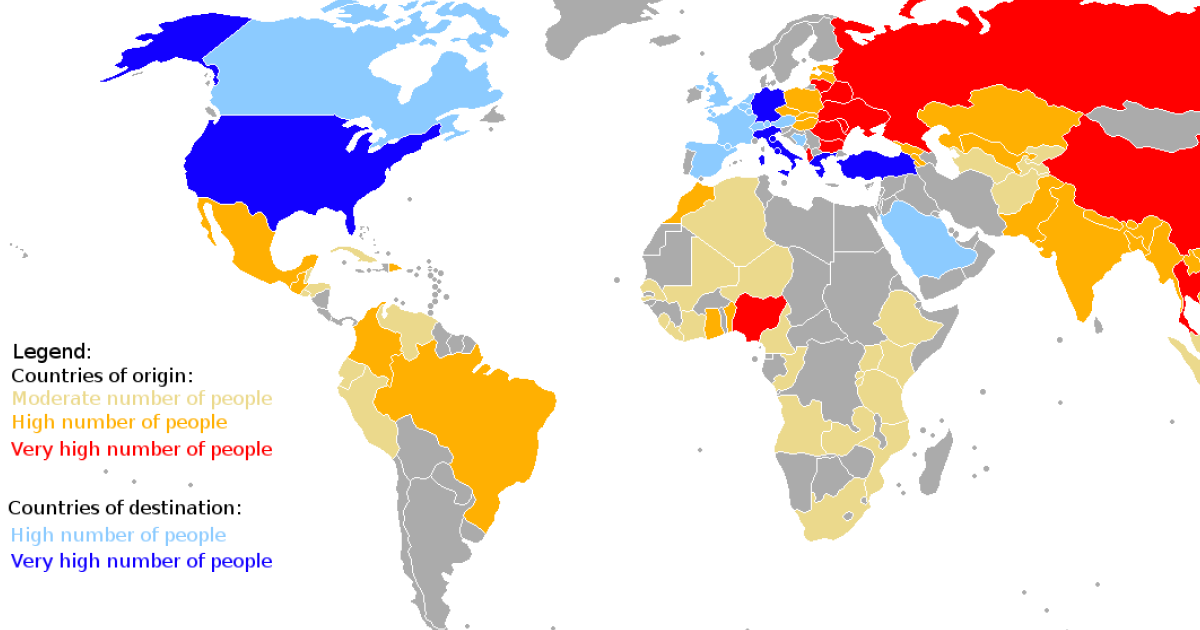
Despite relatively high rates of investment and formal education, there is still a mismatch between the skills of workers in the labour market and those required by employers. Almost 38 per cent of businesses in Ukraine identified an under-educated labour force as a major obstacle, which is higher than the EU average. Investment in research and development in Ukraine remains low.
Ukraine has made significant progress in digital transformation. In 2024, it should achieve full compliance with EU roaming legislation to join the EU's Roam like at home programme and work towards alignment with the EU Security of Network & Information Systems (NIS).
Green agenda and sustainable connection
This area is related to the reconstruction of Ukraine during and after the war. Russia's war against Ukraine has damaged transport infrastructure, the environment and the climate.
In June 2022, Ukraine signed an agreement with the EU to liberalise bilateral and transit road transport. However, overall legislative harmonisation and institutional reforms in the transport sector have been slow.
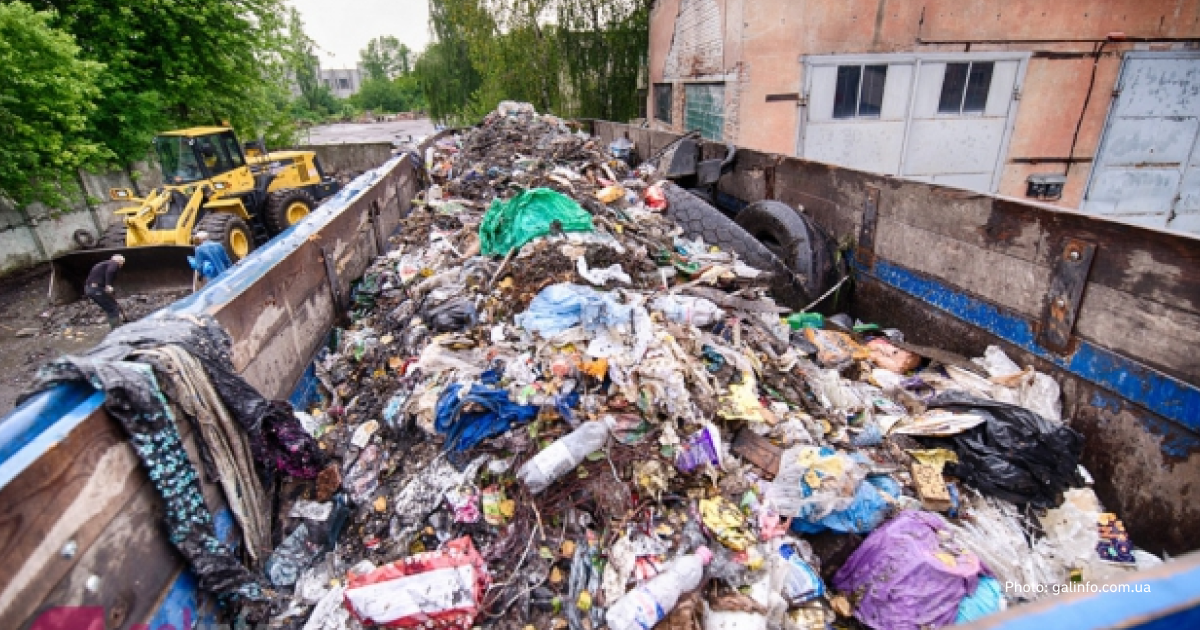
Even though the energy sector has been operating under Russian attacks on critical infrastructure, Ukraine has been harmonising legislation with the EU, particularly on the integrity and transparency of the energy market, renewable energy sources, the gas transmission system operator, and the certification of gas storage facilities. However, measures taken under martial law have led to decreased transparency in the sector. The government regulated tariffs for the population to protect consumers, but the energy market suffered from this.
In the area of environmental protection, Ukraine has adopted legislation aimed at further harmonising water quality, waste management, chemicals and noise. Ukraine continues to work on the National Energy and Climate Plan and a climate law, which should be adopted in 2024.
Foreign relations
In 2022, Ukraine intensified cooperation with global and African Union partners. Also, Ukraine provided humanitarian assistance to Türkiye after the 2023 earthquake. The country also worked on food security and sought ways to supply agricultural products in the face of mining and partial occupation of the Black and Azov Seas.
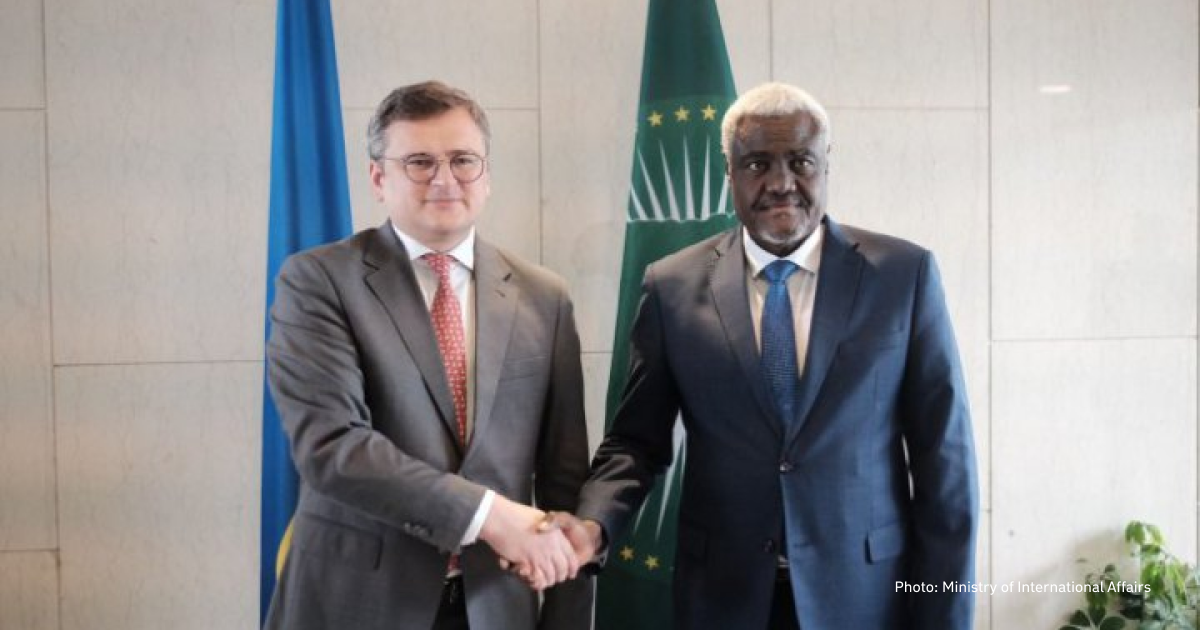
Ukraine has made progress in terms of foreign, security and defence policy. In 2022, it increased the level of alignment with EU decisions and declarations of the EU's common foreign and security policy to 93%.
Ukraine's cooperation with international organisations is "strong and constructive", including the UN, the Council of Europe, the OSCE, and the Organisation of the Black Sea Economic Cooperation. Joining NATO is stated in the Constitution as a central goal and primary task of foreign policy. Ukraine officially applied for NATO membership on September 30, 2022.

As for good neighbourly relations and regional cooperation: Ukraine maintains strong bilateral relations with other countries. These relations have intensified against the backdrop of the Russian war. Cooperation has manifested itself in a number of visits to Ukraine and humanitarian, military, and financial support.
Relations with Hungary remain problematic. Prime Minister Viktor Orbán resisted the decision to start negotiations on Ukraine's membership in the EU until the very end. During the vote, Orbán left the room.
Nevertheless, Ukraine has received the green light and now has to work to implement at least what the European Commission has described in 2023.


